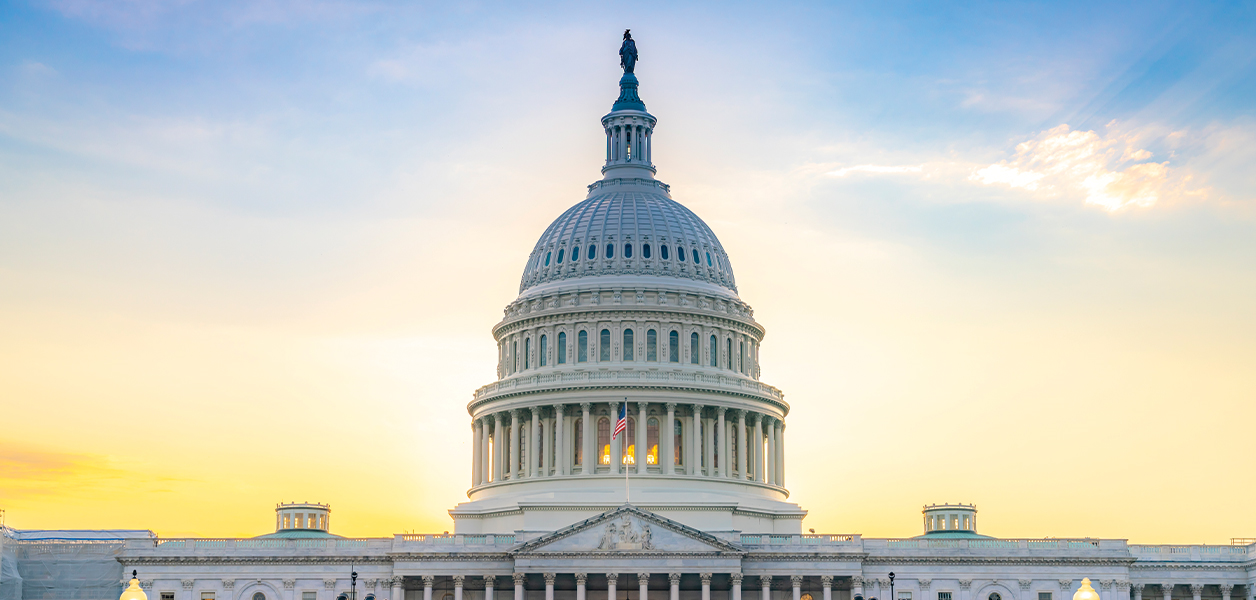The One Big Beautiful Bill Act moves to the Senate with changes expected
On May 22, the House passed the One Big Beautiful Bill Act, the GOP tax and budget reconciliation bill. This legislation contains the main components of President Trump’s domestic policy agenda, including major tax provisions, increased funding for defense, border security, immigration enforcement and expanded energy production. Senate lawmakers are slated to consider this legislation soon and are expected to amend it to meet their own priorities, with a goal of passage by July 4.
This bill is overwhelmingly positive for the roofing industry as it makes permanent and expands numerous key tax provisions widely used by NRCA members. Read more about the tradeoffs here. Potential changes the Senate may consider include increasing the estate tax exemption; additional updates to the State and Local Tax deduction; and potential to add back in or extend phase-outs of energy-efficiency tax credits, particularly on the residential side.
NRCA continues to work with Congress to ensure lawmakers know how each of these provisions will affect our members and are meeting with key decision makers to ensure the positive elements remain and the negative provisions are struck or improved before the final bill is signed into law.
OSHA updates Site-Specific Targeting program
On May 20, the Occupational Safety and Health Administration announced it has updated the Site-Specific Targeting program, which directs agency enforcement resources to employers with the highest rates of injuries and illnesses based on data submitted by employers under OSHA’s recordkeeping requirements. The Site-Specific Targeting is OSHA’s primary inspection program for non-construction businesses with 20 or more employees, and employers may be selected based on their Form 300A data submitted to the agency.
Although the program does not apply to construction contractors directly, NRCA members who are manufacturers, distributors or contractors with certain facilities (such as warehouses or fabrication shops) classified as “general industry” under OSHA’s requirements may be affected by this program. The updated directive replaced the previous Site-Specific Targeting program directive issued Feb. 7, 2023.
Department of Justice expands focus on white-collar criminal enforcement
On May 12, the Department of Justice announced an overhaul of its white-collar enforcement policies in a memorandum, “Focus, Fairness, and Efficiency in the Fight Against White-Collar Crime.” The revised policies narrow DOJ’s enforcement to areas deemed critical to economic security, consumer safety and national security and bring them more in line with the priorities of the Trump administration.
This effort includes an expansion of the Corporate Whistleblower Awards Pilot Program to include violations of “federal immigration law” and “trade, tariffs and customs fraud,” among others. Under this program, which was established in 2024 to focus primarily on health care fraud, current and former employees can file a tip with DOJ regarding alleged instances of employer noncompliance with federal law and receive monetary awards if successful prosecutions occur.
House subcommittee holds hearing regarding independent contractor policy
On May 20, the Workforce Protections Subcommittee of the House Committee on Education and Workforce held a hearing, “Empowering the Modern Worker,” for the purpose of reviewing stakeholder input regarding federal policy involving independent contractors. Subcommittee Chairman Ryan Mackenzie (R-Pa.) and other lawmakers heard from a panel of witnesses regarding the merits of independent work, the need for clarity and consistency in law and regulations governing worker classification, and other related issues. Rep. Kevin Kiley (R-Calif.), highlighted legislation he has introduced, the “Modern Worker Empowerment Act” (H.R. 1319), which amends federal law to establish a clear, predictable test to determine whether an individual is an employee or independent contractor. View a brief recap of the hearing.




